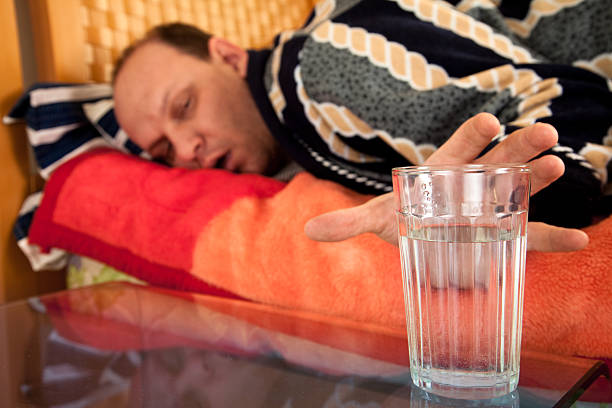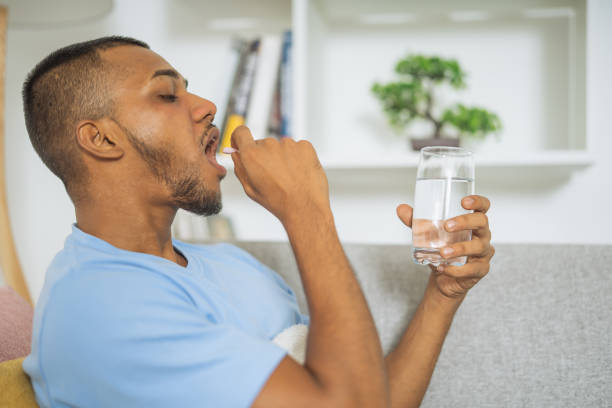Joint Health
How To Get Rid Of Joint Pain After Drinking?
Joint pain can be excruciating, and it’s no secret that drinking can compound the problem. Drinking alcoholic beverages can induce joint pain, making it harder to go about your daily activities. Fortunately, there are techniques to relieve this discomfort and get back to feeling like yourself.
One of the most common causes of joint pain after drinking is dehydration. Alcohol has diuretic characteristics, which cause increased urination and dehydration. This might cause your joint cartilage to lose moisture, making it less effective in providing cushioning between bones. Furthermore, drinking disturbs your sleep pattern, making it more difficult to acquire restful sleep. Fatigue can cause joint pain and other physical ailments.
If you have joint pain after drinking, there are various things you can take to relieve the pain. Drinking plenty of water before, during, and after consuming alcohol can help prevent dehydration. Additionally, anti-inflammatory foods such as fish, cruciferous vegetables, turmeric, yogurt, ginger, and green tea might help reduce joint inflammation. You may help lessen joint pain and get back to enjoying life by following these measures.

Understanding Joint Pain and Alcohol
Joint pain after consuming alcohol is a typical issue that affects a large number of people. While the precise source of this pain is unknown, there are various variables that may contribute to it. In this section, we’ll look at the effects of alcohol on joints and the relationship between alcohol and joint discomfort.
Effects of Alcohol on Joints
Alcohol drinking can be harmful to joint health. Heavy drinking can induce joint inflammation, resulting in pain and discomfort. Alcohol can also dehydrate the body, exacerbating joint discomfort. Furthermore, alcohol can impair the body’s capacity to absorb and utilize vital nutrients such as calcium and vitamin D, which are required for healthy bones and joints.
Alcohol-Related Arthritis and Gout
Certain kinds of arthritis, such as rheumatoid arthritis and gout, have been associated to alcohol usage. Gout is a kind of arthritis caused by uric acid accumulation in the body. Alcohol use can raise uric acid levels in the body, leading to gout attacks.
It should be noted that not everyone who consumes alcohol will get joint discomfort or arthritis. Heavy drinking and long-term alcohol consumption, on the other hand, can raise the risk of joint difficulties. If you have joint discomfort after drinking, consult your doctor to establish the underlying cause and develop a treatment strategy.
To summarize, alcohol drinking can be harmful to joint health. Heavy drinking can cause joint inflammation, dehydration, and impair the body’s capacity to absorb essential nutrients. Certain kinds of arthritis, such as rheumatoid arthritis and gout, have also been associated to alcohol usage. If you feel joint pain after drinking, consult your doctor to establish the underlying cause.

Lifestyle Changes for Joint Pain Relief
Joint pain after drinking might be incapacitating and interfere with our everyday routines. While there is no miracle cure for joint discomfort, certain lifestyle adjustments can help. Here are some modifications we can make to reduce joint pain:
Dietary Adjustments
A healthy diet is important for general health and can help alleviate joint discomfort. Leafy greens, berries, and nuts are anti-inflammatory foods that can help reduce inflammation in the body. Omega-3 fatty acids, which are present in fatty seafood such as salmon and tuna, can also help relieve joint pain. Consider eating a Mediterranean diet rich in anti-inflammatory foods and healthy fats.
Processed meals, sweets, and saturated fats, on the other hand, might aggravate joint pain. Limiting our intake of certain items can help minimize inflammation and joint pain.
Exercise and Physical Activity
Physical activity and exercise can help lessen joint pain by strengthening the muscles around the joints and improving flexibility. Low-impact exercises like swimming, cycling, and yoga can help with joint pain. Start slowly and progressively increase the intensity and duration of the activity.
Adequate Rest and Stress Management
Adequate rest is essential for relieving joint pain. Sleep deprivation can exacerbate joint discomfort and inflammation. It is critical to maintain a consistent sleep pattern and to establish a sleep-friendly environment.
Stress can also aggravate joint discomfort. Meditation, deep breathing, and yoga are stress management strategies that can help reduce tension and relieve joint discomfort.
In conclusion, modifying one’s lifestyle can help lessen joint pain after drinking. We may relieve joint pain and enhance our overall health by eating a balanced diet, exercising regularly, getting enough rest, and regulating our stress levels.

Medical Interventions
Medications and Supplements
If you suffer from joint pain after drinking, there are drugs and supplements that can assist. Acetaminophen and nonsteroidal anti-inflammatory medications (NSAIDs) are examples of over-the-counter pain medicines that can be beneficial in lowering inflammation and pain. However, before taking any drug or supplement, consult with your doctor or healthcare professional to ensure that it is safe for you.
Calcium supplements can also aid in the reduction of joint discomfort and inflammation. Calcium is necessary for strong bones and joints, and it can also help prevent osteoporosis. Consult your healthcare professional to decide the right amount of calcium supplement for you.
Professional Healthcare Advice
If your joint discomfort persists or becomes severe, you should seek professional medical attention. Your doctor or healthcare provider can assist you in determining the root cause of your joint discomfort and recommending appropriate treatment. To assist relieve your joint discomfort, they may recommend physical therapy, corticosteroid injections, or other medical procedures.
Joint pain after drinking may be a symptom of an underlying medical disease such as arthritis or gout in rare circumstances. Your doctor can do tests to see whether this is the case and then offer the proper treatment. If you have severe or chronic joint pain, or if you have additional symptoms such as swelling or redness around the affected joint, you should seek medical assistance.
In conclusion, there are a number of medicinal therapies that can assist relieve joint pain after drinking. Before using any drug or supplement, consult with your doctor or healthcare provider, and get expert healthcare guidance if your joint pain persists or becomes severe.

Preventing Joint Pain After Drinking
Dehydration, excessive alcohol consumption, or the body’s reaction to ceasing drinking can all contribute to joint pain after drinking. There are, nevertheless, precautions we can take to avoid joint pain after drinking.
Drink Plenty of Water
Dehydration is one of the most common reasons of joint pain after drinking. Because alcohol is a diuretic, it causes the body to lose fluids. This might result in joint discomfort as well as other symptoms including headaches and exhaustion. To avoid dehydration, drink plenty of water before, during, and after drinking alcohol. For every alcoholic drink we have, we should try to drink at least one glass of water.
Drink in Moderation
Another strategy to avoid joint pain after drinking is to consume modest amounts of alcohol. Men should limit their alcohol consumption to no more than two drinks per day, while women should limit their consumption to no more than one drink per day, according to the Dietary Guidelines for Americans. Moderate alcohol use can help reduce joint discomfort and other health issues linked with excessive alcohol consumption.
Manage Joint Pain
If we already have joint discomfort, there are numerous strategies to deal with it. Over-the-counter pain medications such as acetaminophen or ibuprofen can greatly alleviate joint pain. However, before taking any drug, we should always contact with a doctor to confirm that it is safe for us. Massage treatment can also assist to ease joint discomfort.
Quit Drinking Gradually
If we experience joint pain after quitting drinking, we should do it gradually. Quitting drinking abruptly can result in withdrawal symptoms such as joint discomfort. Reducing our alcohol consumption gradually can help prevent joint discomfort and other withdrawal symptoms. To assist prevent the possibility of vitamin deficiencies, we should also eat a healthy, balanced diet.
We can avoid joint pain after drinking by following these suggestions and managing any pain we may be feeling. Remember to drink alcohol in moderation and to seek medical attention if we experience joint discomfort or other symptoms.
Conclusion
Exploring ways to alleviate joint pain after drinking has been a journey of self-discovery. Acknowledging the impact of alcohol on joint discomfort and finding personalized strategies for relief has added a layer of mindfulness to my lifestyle.
From staying hydrated to incorporating anti-inflammatory foods and prioritizing rest, I’ve realized that my body’s response to alcohol involves more than just immediate effects. Listening to its cues and responding with conscious choices has become integral to my post-drinking routine.
In essence, the quest to mitigate joint pain after drinking has taught me that self-care is a holistic practice. While there might not be a one-size-fits-all solution, the amalgamation of hydration, nutrition, and mindful choices has become my personalized approach to fostering joint well-being.


